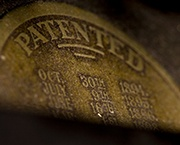Does a patent expire after 20 years? Not always!

In principle, the maximum life of a patent is 20 years, in practice it could be 21 years or more. Why is that? We are talking about a typical exception to the rule here, which also applies to the world of patents!
Fortunately there is no need for you to worry about most of these exceptions. We will do that for you. However, when it comes to the life of a patent it is advisable for you to keep an eye on this, especially when you want to use a patent database to determine whether or not a patent has expired. We know of some examples from everyday practice where this has gone horribly wrong.
So does a patent expire after 20 years? Here are three exceptions to the rule.
1. The priority year
When you apply for a patent, the date on which you submit your application is the priority date. The 12 months that follow this are referred to as the priority year.
By making effective use of that priority year, you can postpone the expiry date of your patent by one year. This means that your patent (counting from the first filing date) expires after 21 years instead of after 20 years. This is a clever trick a patent attorney would be only too pleased to help you with.
2. Not every country is the same
Although the standard period of 20 years after filing applies in most countries, there are exceptions.
One of these is Brazil. Here every patent is valid for 10 years after being granted. In the knowledge that a granting can take 12 years or even longer, you could end up making a huge mistake if you were to stick to 20 years as a maximum period of validity.
Up until 8 June 1995, the USA used to have a similar arrangement, whereby patents remain in force up to a maximum of 17 years after granting. American patents submitted before 8 June 1995 could therefore still be in force.
Moreover in some countries, including both the USA and South Korea, a longer period of protection can be obtained if the granting phase of the application took a long time. These rules also differ from country to country.
3. Medicinal products are an exception
A longer period of protection may be awarded for the protection of medicines based on the Supplementary Protection Certificate (SPC) which can be used to extend the validity of a patent by up to 5 years.
Before a medicinal product comes onto the market, a number of years will pass during which research is conducted into the safety of the product. The European Medicines Agency will only issue a marketing authorisation for the active ingredient if a medicinal product is safe and effective.
To compensate for this period, the term of protection of the patent can be extended by 5 years using an SPC. This gives the patent holder extra time to earn back his investment.

About the author
I studied mechanical engineering and materials science at Delft University. I joined EP&C as a trainee patent attorney in 2015 and qualified as a Dutch and European Patent Attorney in 2021. In...
More about Thomas >